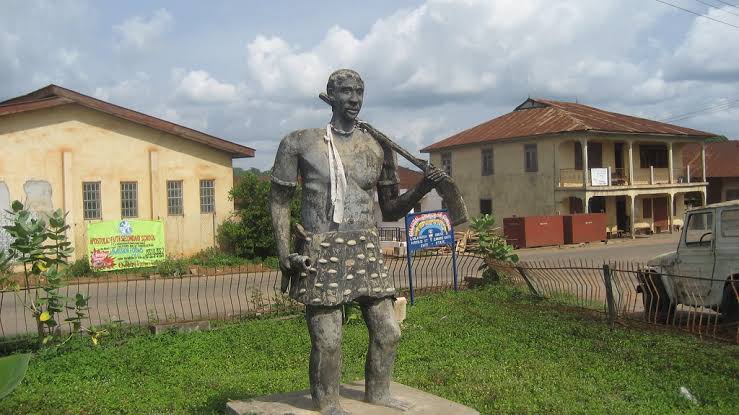The issues of bloodline linkage and transparency of rites and processes have been brought the fore as the ancient town of Emure-Ekiti choses its next monarch. Currently, there are five contestants with claims to the throne. Nevertheless, there have been calls for all contestants to publicly declare their links to the house producing the next king; the Abenimota ruling house.
The Historical Background of Emure Ekiti
Emure Ekiti, located in Emure Local Government Area of Ekiti State, is a town with deep-rooted Yoruba cultural heritage. Historically, the town traces its Yoruba history directly to Oduduwa through its founding by Obadudu to Oranmiyan, who was a son of Oduduwa – father of the Yoruba race. The community is traditionally governed by a monarchical system, with two ruling houses responsible for rotational kingship – Abenimota and Adumori, his brother. The official title of the town’s monarch is Elemure.
The Abenimota Ruling House and the Long Wait
In ancient times, the Elemure position has been held by individuals from the Abenimota Ruling House, as evidenced by the names of past rulers like Kanga, Aladeloye, Atikuopolo, Atobiloye, and Odoba Famuti. However, until 1983, when Oba Adigun Oshin, Omiyomade 1 ascended the throne of his ancestors, the Abenimota ruling house had not produced a king in Emure Ekiti since 1882 – over a century. For over 30 years, the house fought legal battles seeking recognition and restoration of their right to the throne. Inquiries and traditional consultations were part of the prolonged process to ensure fairness and legitimacy. The Abenimota Ruling House has been involved in legal matters related to the succession of the Elemure, as seen in cases like Wilson V. Oshin (2000).
Current Kingship Contest
The last Elemure of Emure Ekiti, Oba Emmanuel Adebayo, passed away in May 2024. Today, five finalists have emerged as contenders for the kingship. However, any hint of ineligibility among the candidates will stir serious concerns within the community. This has led to calls for a transparent scrutiny of the claims by each contestant.
“In Emure, just like most African societies, the traditional monarchs have stood as a symbol of our identity and culture. This is why the process of their emergence have to be impeccable,” said an indigene of the town. “This is why several indigenes including princes are calling for the contestants to declare their connection to the Abenimota ruling house via bloodline.”
It is common in Yorubaland for contestants vying for kingship to publicly declare and defend their royal bloodlines. These declarations are a significant aspect of the selection process, with claims of lineage being scrutinized and sometimes challenged by other contestants. The legitimacy of the royal bloodline is a key criterion, and meeting all requirements is vital.
According to another indigene of the town, current calls for transparency include a call for the final five contenders to submit themselves to the scrutiny of their ancestry by publicly stating their claim to the throne i.e. how they are linked to Abenimota and describe in detail their paternal lineage within the Abenimota ruling house.
“Once these five (5) contenders have published their claim of paternal lineage to Abenimota, it is now imperative that the family heads and community elders of Emure Ekiti step in to scrutinize these lineage claims by doing thorough background checks on all five contenders. This is not just about tradition — it is about justice, about preserving the identity and honor of Emure Ekiti’s monarchical legacy. Only through such openness can the community ensure that the throne is not hijacked by those without legitimate claims,” he added.

